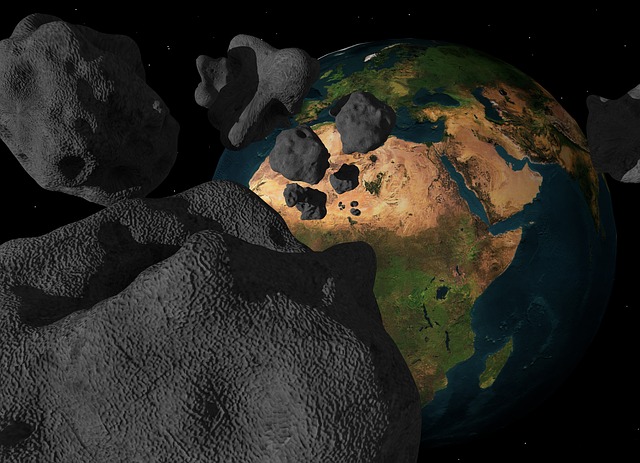Over ten years ago, scientists were surprised to discover that the most abundant kind of meteorites they had collected on Earth and studied for years were not common materials found in space.
An asteroid is a rock about the size of a small planet orbiting inside the solar system. A meteor, on the other hand, is a space rock that streaks into the atmosphere, while a meteorite is the remains of any space rocks that make it to the ground here.
For the longest time, the assumption was that these meteorites would have the same composition as the asteroids in the Earth’s immediate vicinity, the New York Times reports.
Now, a study by an international team of researchers led by Philip R. Heck has shed some light on this seeming anomaly. Evidence shows that around 466 million years ago – dinosaurs didn’t even exist then – there was a massive collision in the asteroid belt that sent thousands of meteorite shrapnel to Earth.
Heck, the curator in charge for the meteorite and physical geology collections at the Field Museum of Natural History in Chicago, and the team looked for meteorite that landed even before that. They found samples in ancient limestone from Russia that was a million years older.
The scientists dissolved 600 pounds of this rock and extracted 46 tiny crystals containing the mineral chromite. These crystals remain unchanged for hundreds of millions of years. In them, the team found that 41 of the elements came from space, and they could tell which asteroids they were once a part of.
Their findings fit with a new theory that a mix of meteorites is identified more by the history of collisions in the asteroid belt rather than on the asteroids orbiting the sun.
Pierre Vernazza from the Laboratory of Astrophysics of Marseille, France, who first noticed the discrepancy in asteroid and meteorite composition in 2008, said of this study, “It opens new roads of research.”
The study was published in the journal Nature Astronomy.
























